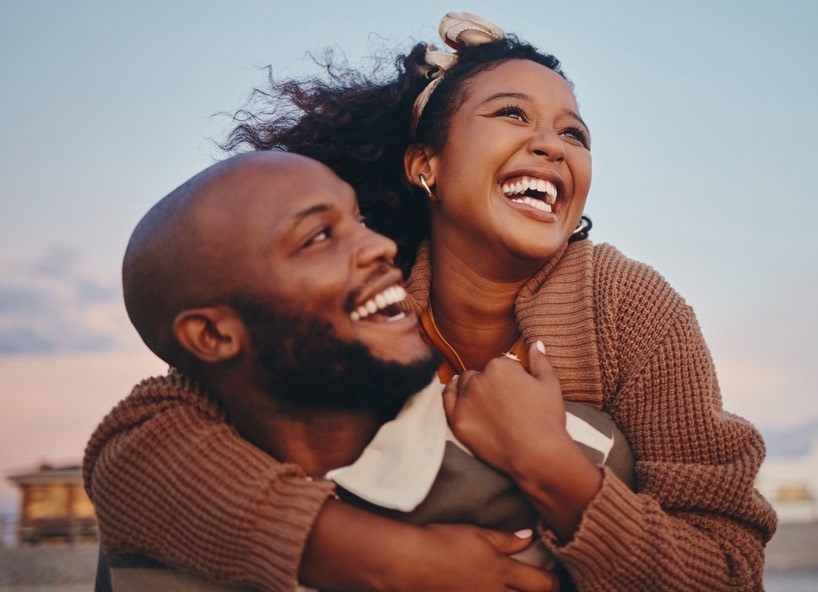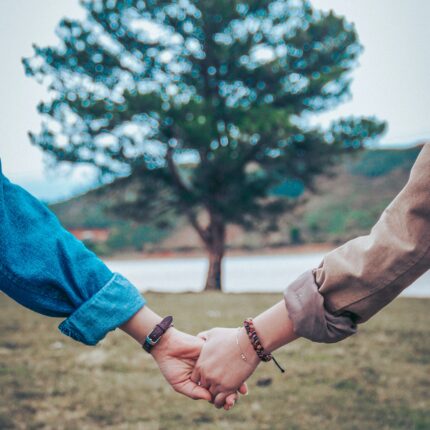
Do you lose yourself in romantic situations? Are you prone to changing your shape to suit your date, morphing into the person you think they want you to be? Do you struggle to voice your needs and wants or express your truth when dating? Do you find yourself pleasing the other and abandoning yourself? If so, you are not alone and change is possible.
In my dating days, I was a chameleon, metaphorically changing the colour of my skin to fit in with the guy I was meeting. I’d think: who do I need to be for this man to like me? How do I need to behave to earn his approval? What do I need to say, or not say, to avoid rejection?
 Practically, this meant that if he suggested meeting at eight in the evening, I’d agree even though I wanted to meet at six. Or if he chose a movie I’d already seen or didn’t want to see, I’d still say Yes because it suited him. I’d hide my opinions, censor my truth, abandon my needs and wants and lose all sense of myself.
Practically, this meant that if he suggested meeting at eight in the evening, I’d agree even though I wanted to meet at six. Or if he chose a movie I’d already seen or didn’t want to see, I’d still say Yes because it suited him. I’d hide my opinions, censor my truth, abandon my needs and wants and lose all sense of myself.
In short, I would date codependently, hiding my true self to control the other’s opinion of me.
If these dates progressed into relationships, they would soon crumble because they weren’t based on real or solid foundations or any level of authenticity, at least on my part.
I developed codependency in my childhood, as is the case for many of us. I emerged into adulthood with a poor sense of self, low self-esteem and low self-worth, a deep fear of people and the world and unhealthy boundaries.
Codependency is an umbrella term that encompasses all these traits.
 I grew up around addictive and compulsive behaviours and experienced abandonment, rejection and loss. At times, I felt unlovable and unsafe and I developed ways to manage my feelings and survive painful situations.
I grew up around addictive and compulsive behaviours and experienced abandonment, rejection and loss. At times, I felt unlovable and unsafe and I developed ways to manage my feelings and survive painful situations.
I learned to tune in to people’s feelings so that I could preempt anger or rejection. I learned to adapt to fit in and feel safe. And I developed a craving for love, affection and connection, coupled with a deep fear of intimacy and relationship.
Imagine going on a date feeling unsure of yourself, less than, shaky inside – wobbly, like jelly – and wanting to be loved above all else, at any cost, but fearing this too.
The outcome wasn’t good. I would repeatedly act against my best interests, push and pull and get hurt or hurt others. Dating felt like banging my head against a brick wall. Ouch.
If you can relate to these behaviours, the following steps will help you to date in healthy, not codependent ways:
Understand the roots of your behaviours
Self-awareness is the first step to change. To understand why we behave as we do on dates or in love relationships, we look back at our first experiences of emotional intimacy, with parents, caregivers, siblings and other significant people.
Did we grow up feeling safe or afraid of people and the world? Did our upbringing give us a strong sense of self or did we feel not good enough? Did we develop trust, in God, in things working out, or did we feel the need to control outcomes? Did our early life relationships bring us joy or pain?
When we explore these and similar questions, we start to see that our behaviours make sense and follow a pattern.
Heal your early life wounds
We change our unhealthy relationship patterns by healing our early wounds, in whatever way feels right for us. In my case, my healing involved feeling the feelings I’d been running from for years. I avoided my childhood pain through binge eating, drinking, over-working and drama-filled relationships. I had to let go of these coping mechanisms to feel my pain and heal it. I didn’t do this alone – I turned to God and to appropriate people, friends and professionals, for support.
I also had to learn to soothe and re-parent myself – to give myself the things I missed out on in childhood and that I was still trying to get from outside sources, including my date or boyfriend. I had to give myself love, affection, validation, reassurance and create a sense of safety for myself.
The more we meet our own needs, the less desperate we’ll be for our date to meet them for us. This gives us the confidence to show up authentically.
Get to know your true self
Who are you, deep down, beneath the coping mechanisms, defences and masks you developed to feel safe and to get love? What are your passions and hobbies? What are your likes and dislikes? Whom do you like spending time with? Who did God create you to be?
By trial and error and with playfulness, we can get to know ourselves and appreciate all of ourselves. We can start to esteem ourselves and grow a solid core, rather than a shaky one.
In this way, we’ll be able to hold on to ourselves when we go dating. We’ll be able to say, ‘I know who I am and I like who I am’ and we’ll be able to express our truth.
These steps can be challenging but they are worth the effort, because they’ll lead us into the` healthy relationship we deserve.
How do you struggle do stay true to yourself when dating?
Have you found ‘How to stay true to yourself when dating’ helpful? There’s lots more by Katherine Baldwin to read here including ‘Why healthy boundaries are key to successful dating‘ and ‘How to stay grounded when dating‘
Get weekly blog articles direct to your email inbox





